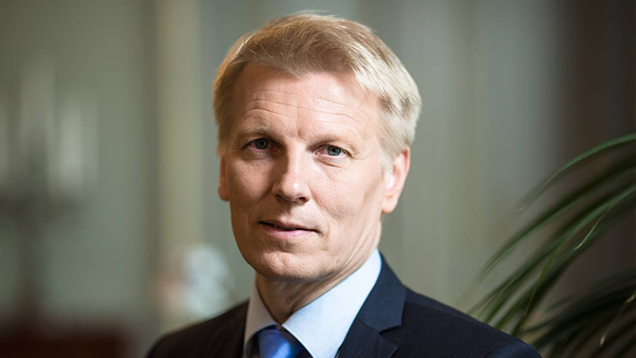Minister Tiilikainen: support for renewable electricity to be as cost-effective as possible

On 15 September 2017, the Ministry of Economic Affairs and Employment circulated for comments a draft government proposal putting forward plans to invite tenders for renewable electricity generation. The aim is to increase investment in the generating capacity for renewable electricity as we move towards the 2020s, on a cost-effective basis and to the overall benefit of the national economy.
“The goal is to develop a system that is as favourable as possible from the taxpayers’ viewpoint and which produces an agreed amount of renewable energy at a cost that is reasonable to the state,” says Minister for Housing, Energy and the Environment Kimmo Tiilikainen.
The cost-effectiveness of a premium scheme can be ensured by means of a technology-neutral tendering process. The premium scheme would be intended as a transition period solution. The objective is to invite tenders for a total of 2 TWh of annual electricity production. Organising the tendering process would require separate authorisation for inclusion in the budget.
“The two terawatt hours to be put out to tender are not a huge amount, but this represents a critical step on a path towards a goal of 50 per cent renewable energy by 2030.
“The new system would be technology-neutral. The idea is to see how the different forms of renewable energy production actually manage in reality on market terms.
“It places the different generating methods on an equal footing, which allows us to move away from today’s different approaches for the various methods. Instead of wind power or other forms of production having their own quotas or their own financial support arrangements, we plan to experiment with the idea of bringing them all now onto an equal footing. And if there are as many providers as possible and of different types, this should reduce the costs of the system,” explains Tiilikainen.
An electricity producer whose power plant has been approved for the premium scheme on the basis of the tendering process could receive operating aid in accordance with the premium scheme. The electricity producer would have an obligation to produce electricity in accordance with the accepted tender. If the producer does not comply with this obligation, it would be ordered to pay compensation to the state for underproduction. The rights and obligation under the premium scheme would be in force for a fixed period, with the maximum duration of the support period being twelve years.
“The call for tenders would probably be made in more than one phase. The most advantageous of the tenders would be selected. The successful tenderers in this system would undertake to produce the amount of renewable electricity stated in their tenders, and at the price stated,” says Tillikainen.
“The present feed-in tariffs would be discontinued after the agreement period, and no further producers would be taken into the system. The new system proposed would be considerably more cost-effective.
“These proposals have now gone out for comment and I do hope that we receive a lot of responses, allowing us to finalise the draft proposals and create as effective a system as we can,” says Tiilikainen.
The request for comments and the draft bill can be viewed in Finnish on the website of the Ministry of Economic Affairs and Employment at http://tem.fi/lausuntopyynnot. The period for comments closes on 4 October 2017. Following the receipt and consideration of comments, the proposals will be finalised and submitted to Parliament during autumn 2017 for its consideration.
Inquiries:
Jyrki Peisa, Special Adviser to the Minister for Housing, Energy and the Environment, tel. + 358 50 364 0836
Anja Liukko, Senior Ministerial Adviser, Ministry of Economic Affairs and Employment, tel. +358 29 506 2078